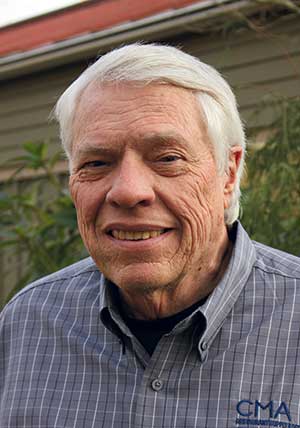Cliff Macbeth, Dealer Designer and Project Director, CMA Restaurant Supply and Design, Kirkland, Wash., says he got started in the foodservice industry by mistake in 1973, after graduating from Ohio State University with two architecture degrees. There was a glut of architects in the market at that time, so he took a job as a foodservice draftsman.
 Cliff MacBeth"I meant to get out of the field eventually, but after five years I realized I really liked it," says Macbeth. "It was a fun learning experience every day."
Cliff MacBeth"I meant to get out of the field eventually, but after five years I realized I really liked it," says Macbeth. "It was a fun learning experience every day."
He then started his own dealership, CMA Restaurant Supply and Design, which he eventually sold to current president Jeff Winter. Macbeth decided to stay on as dealer, designer and project director.
Macbeth works with a variety of clients, ranging from small independent restaurants to large casinos. His projects include both remodels and new builds.
FE&S: You have two degrees in architecture. How does that help you when designing foodservice operations?
CM: It's a tremendous help. In our projects, 99 percent of the time there are architectural firms involved. I understand both the structural and mechanical aspects and can work with architects to make sure the mechanics of the building and architectural intent work with our foodservice design.
FE&S: What's the most important step in developing a good kitchen design?
CM: There is not just one factor, that's for sure. One has to ask the right questions of the client and extract information to create an operation that works for their current and future menu. It's also important to realize when looking at a design plan that clients don't necessarily see what I see. For me, the design jumps off the paper in 3D, but a less experienced eye may require isometrics and elevations to get the same view.
FE&S: Name one critical factor that goes into writing a good equipment specification.
CM: The kitchen equipment must function properly for what operators perceive their menu to be and what it will be in the future. It's important to build in that flexibility that may be needed down the road.
FE&S: What's the key to developing long-term relationships?
CM: We're proud that 80 percent of our clients are repeats from the past 30 to 40 years. The most important thing is to be honest with everyone. Also, taking mental ownership of their project along with them is key. It's important to realize that every time someone walks in the door, their project takes priority in their lives and we need to treat it that way throughout the design, pricing, installation and all the steps involved in getting it completed.
FE&S: Describe how the industry has changed for the better since you first started.
CM: In general, we're seeing in the industry a lot more people who are well educated in what they're doing. Those of us left have a good degree of talent and education that is beneficial for the entire industry. Also, technology on the equipment side has made great strides to produce high-quality results.
FE&S: What do you enjoy most about your line of work?
CM: I enjoy the design portion, becoming a member of a team, getting to know everyone and the fact that I physically go out and help install projects. I get to show clients how the equipment functions and ensure it's running properly. It's very rewarding being involved in all aspects of a project.



